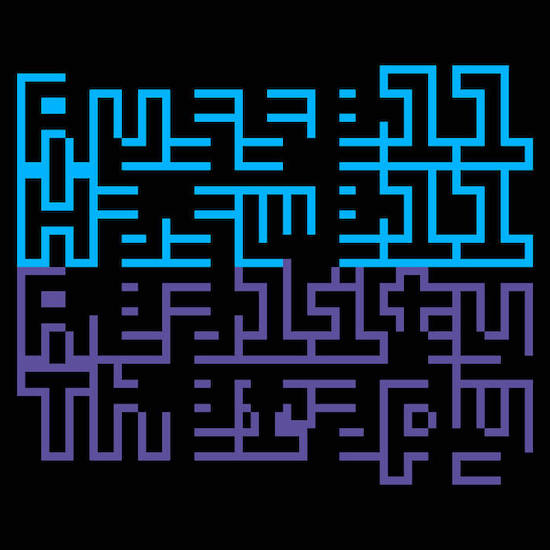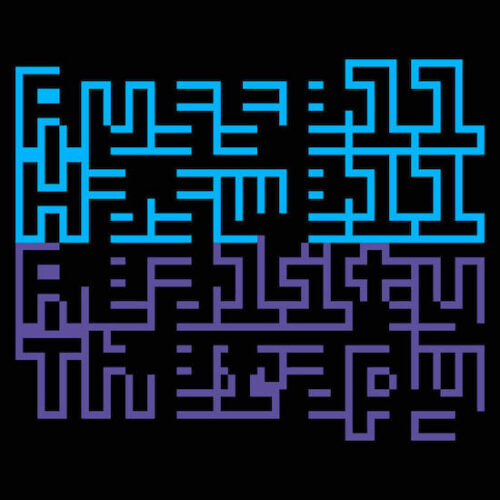Russell Haswell’s chaotic, arrhythmic electronica may seem almost too obvious a fit for the subject of his new album: the experience of watching live news coverage during the lockdowns. However, the UK noise veteran finds poignant and original ways of presenting how we process information throughout Reality Therapy – aided by his enduringly unique way of imagining sound. Having worked in the visual arts, his physical, tactile electronica reflects someone who understands how to create texture and shape outside the abstract terms of music. The result is an agitated, bracing record that deals less with the pandemic – perhaps mercifully in late 2023 – than broader questions about our brains.
We are forced to consider Reality Therapy a record about cognition through titles like ‘Availability Heuristic’ and ‘Adverse Inference’. If you have to look these up like I did, it’s perhaps a playful trick by Haswell: gluing you to a screen so you can understand his album about being glued to screens. ‘Availability Heuristic’ refers to how we judge something’s likelihood based on how easily we recall similar events. Our struggle to make sense of this track’s jerky, disorientating beat – comprising a bare-bones palette of kicks, snares and cowbells – illustrates how our decision-making is based upon received information. ‘Adverse Inference’ refers to the drawing of a negative conclusion from the silence of an accused party. Here, a drone intro bursts into an industrial dance pattern, evoking a courtroom erupting into hysteria at the words ‘no comment’.
Throughout the album, Haswell’s disorientating compositions may leave us spending entire tracks trying to align ourselves with what’s happening. The word for this, ‘Entrainment’, is given to Reality Therapy’s slipperiest track. Haswell here illustrates how our mindsets are shaped by external stimuli: isolated during the lockdowns, we may have found our thinking as erratic as this piece.
This all constitutes an interesting storytelling approach, redolent of Haswell’s background in the visual arts. Ideas are not conveyed through linear developments in the tracks, as much as our gradual deciphering of them as monolithic things. Forming an impression of the overlapping waves of rippling, clicking synths in ‘Transparent Introspection’ feels more like perceiving a painting or sculpture than a piece of music.
Haswell has also found striking ways of presenting technology. In ‘Tik Tok Tic’, short sequences of fast-paced percussion evoke scrolling and tapping through short-form content. The slow emergence of a jerky acid synth melody indicates some malevolent force (addiction? anxiety?) gradually taking precedence.
Reality Therapy may be dismissed by listeners tiring of art inspired by the pandemic, but its real ideas are far grander in their scope. Haswell has found colourful ways of forcing us to consider how we think about the news, music, and everything else.



